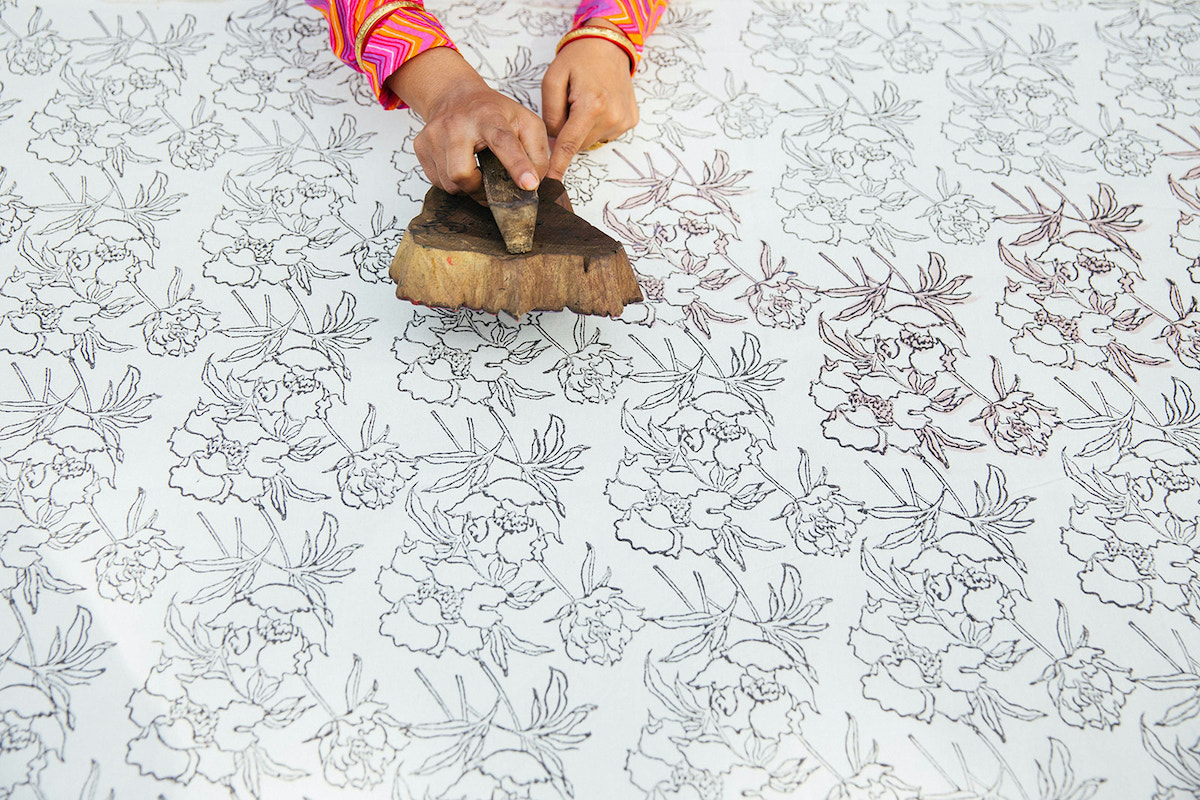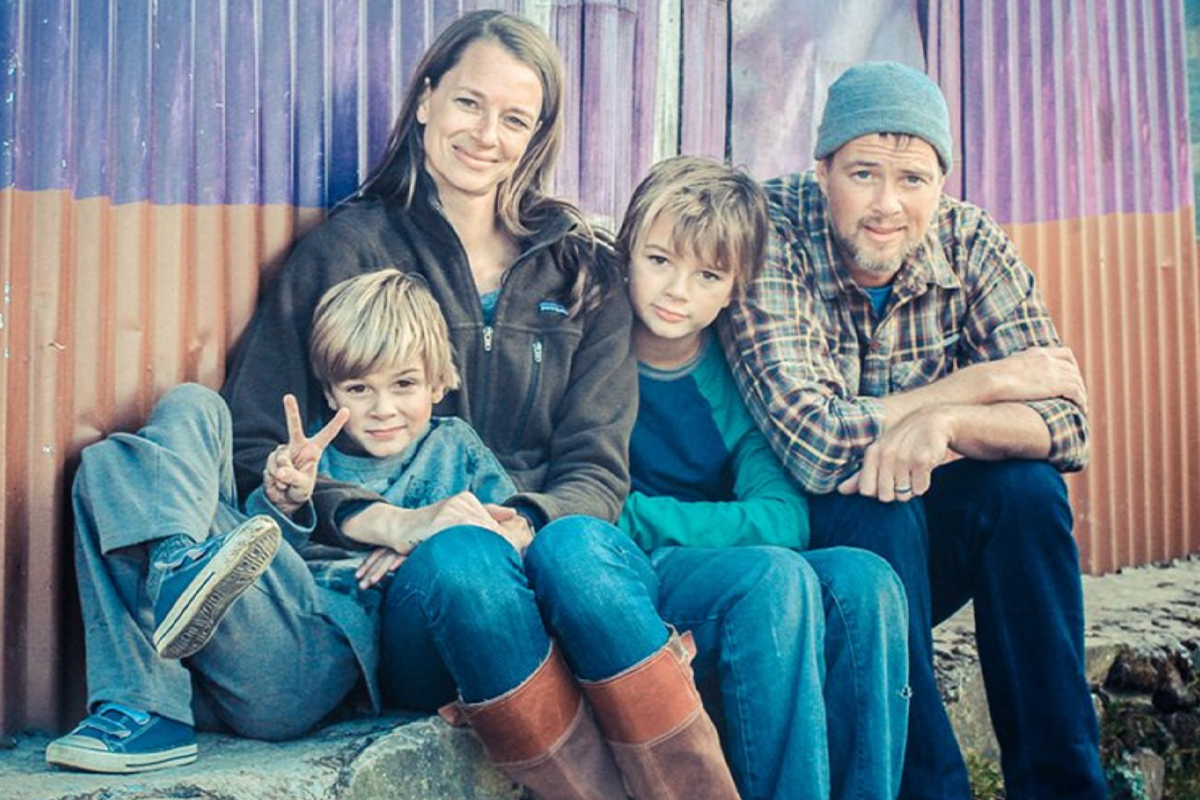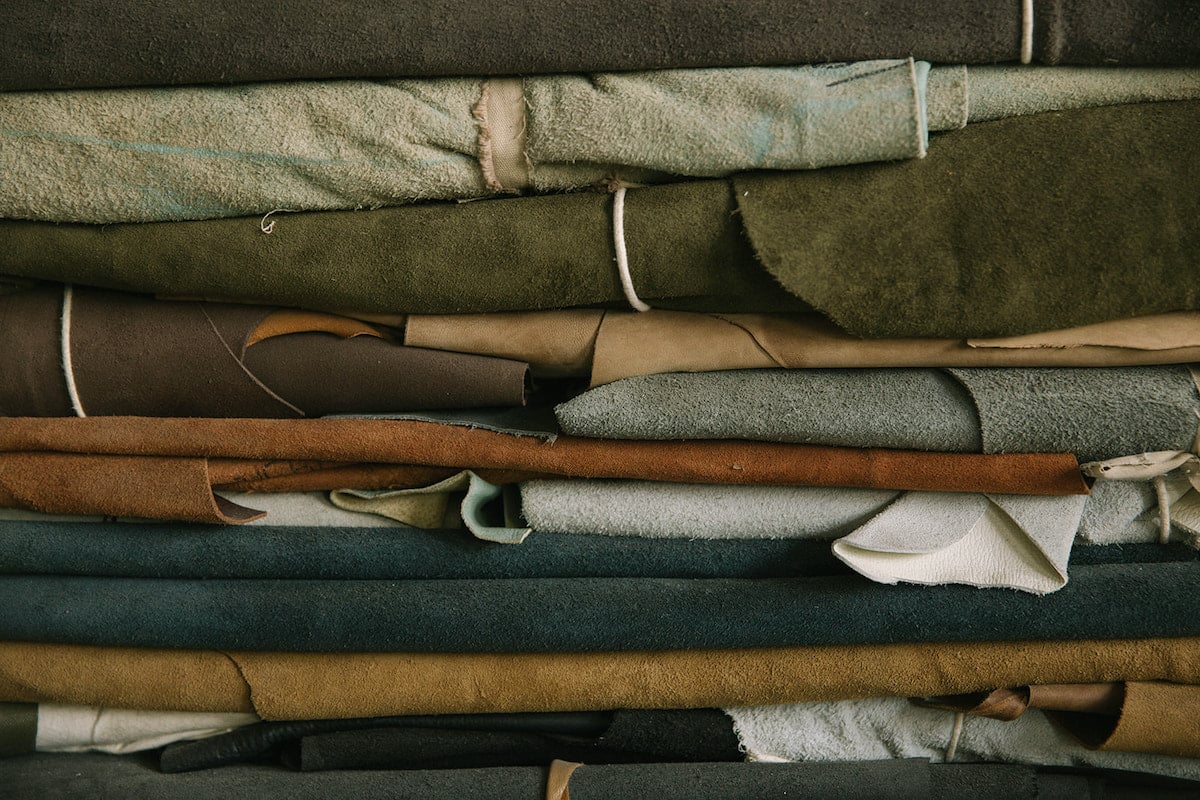The global fashion industry is a significant employer. It generates economic growth, spurs tax revenue and provides valuable skills and training. All of these factors can, and often do, contribute to improving the lives of employees and their communities. At the same time, however, fast fashion is a source of major exploitation and pollution.
The clothing industry produces 10 per cent of all humanity’s carbon emissions and is the second-largest consumer of the world’s water supply, according to the World Economic Forum. On top of this, 85 per cent of all textiles go into landfill each year.
“The pandemic has made us stop and think. Consumerism and materialism have cast quite a spell on the developed world.” – Melody Murray
And washing certain types of clothes releases about 500,000 tonnes of microfibres into the ocean each year – the equivalent of 50 billion plastic bottles. But despite the facts and figures, clothing production has roughly doubled since 2000.
In an effort to combat the epidemic of fast fashion, JOYN is one of several brands aiming to influence consumers to rethink their purchasing habits.
Moving away from fast fashion
Investing in local talent
Since JOYN’s inception in 2013, the business – which operates by hiring local artisan workers – has grown into eight different businesses that are owned and managed solely by local entrepreneurs.
“My husband and I moved to a small town at the base of the Himalayas for the purpose of connecting artisans with markets,” explains Melody Murray, Founder of JoyCorps and JOYN. “We have a passion for bringing opportunity to those living in vulnerable regions or have experienced severe trauma.”
Operating on the motto of “reviving tradition, restoring fashion and reclaiming transparency”, JOYN has provided over 300 artisans with sustainable incomes to handcraft beautiful bags and accessories.
“It’s an exciting time for what we call ‘redemptive business’ – slow, sustainable business focused on people and the planet rather than solely profits.” – Melody Murray
“We cashed in our US$401,000 retirement plans and started JOYN and my husband’s guitar business on US$14,000,” Melody shares. “The businesses now have a revenue of over US$1 million annually.”
JOYN partners with local cooperatives to keep manufacturing at a community level and encourage local leadership and personal development with marginalised and trafficked victims. JoyCorps – the non-governmental organisation, also established by Melody – supports the business.
“One of my highlights has been having the resources, networks and time to start a not-for-profit, JoyCorps – dedicated to finding and resourcing young, social entrepreneurs who work in north India and the surrounding region,” Melody tells The CEO Magazine.
“I’ve truly enjoyed starting an organisation built on finding local leaders, who are most equipped to bring change in their communities, and resourcing them with the funding, coaching and networking they need to scale.”
Wear the change
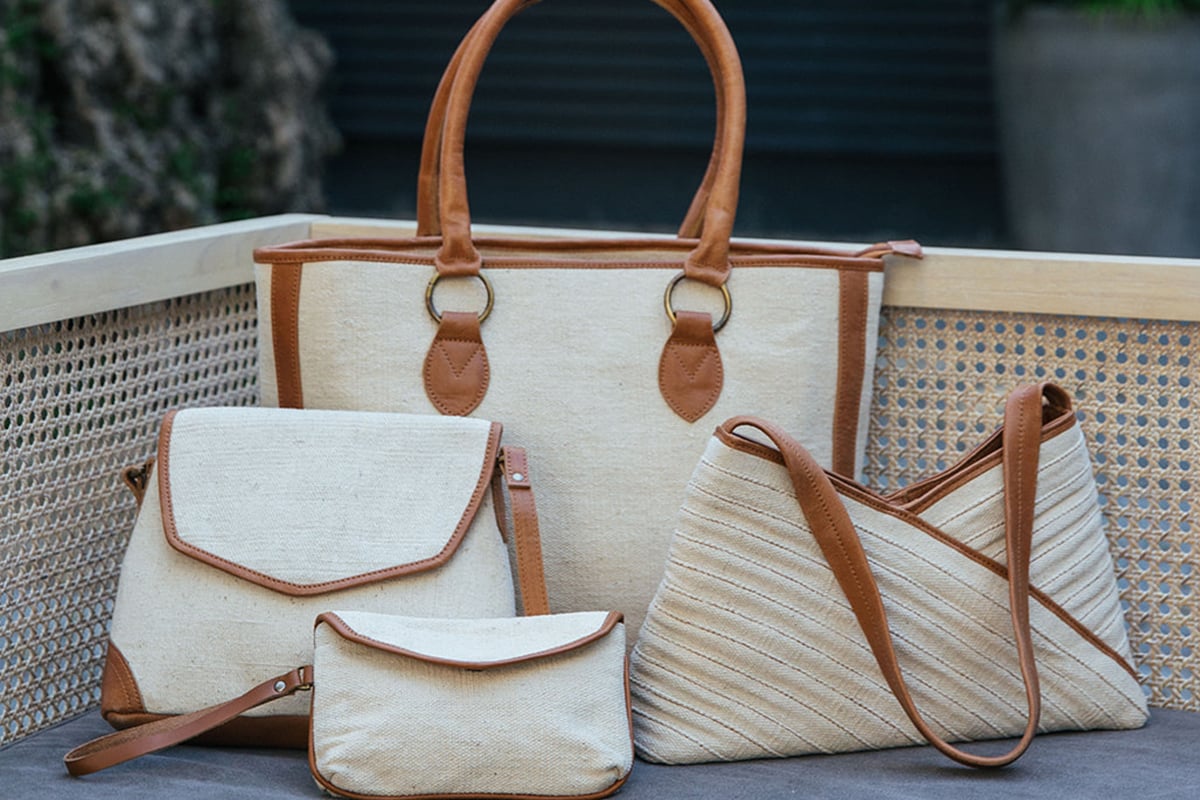
The demand for ethical manufacturing is increasing. Melody explains that consumers are tired of a lack of transparency and unethical treatment.
“They want their purchases to have a positive impact on the world, both from a sustainability point of view and the ethical treatment of the people who make the products,” she says.
“The sector has grown significantly since our inception in 2013, and I’m grateful for that, seeing a drive from consumers forces brands and businesses to change and continue to do better.”
Over the years, an increasing number of operators have come into fruition to make a positive impact on the fashion world, including ARNA, Armedangels, Afends and Birdsong.
Good On You is another source that helps consumers determine whether a brand is ethical or not. The platform pulls information together and uses expert analysis to give each fashion business an easy-to-understand score in terms of its ethical practices.
“Consumers are rethinking their buying power and their purchasing habits,” Melody notes. “The pandemic has shaken everyone. It has caused people to rethink about whether their actions and purchases are in line with their values.”
At the beginning of lockdown, JoyCorps’ researcher, Sean Tuckey, did extensive analysis on consumer behaviour. Sean found that people quickly went from their regular comfort status to fear and uncertainty. Followed by a period of adjustment and creation of new habits due to discoveries while being locked down at home.
“The pandemic has made us stop and think. Consumerism and materialism have cast quite a spell on the developed world,” Melody acknowledges.
A trying season

COVID-19 has significantly impacted JOYN, as about 80 per cent of its business relies on small bricks-and-mortar retailer partnerships.
“Most of them have had to shut down for months and, many, won’t ever open again,” Melody shares. “Some of those partners have been buying our bags for almost 10 years now. I would hope that they’d have resiliency and open up as the economy gets back to normal.”
The business has also had substantial cash flow issues. It had to shut down its entire manufacturing operation for months, while still paying the workers.
“The most enjoyable part of my job is that each time I land a new sale, find a new customer, get a new purchase order, it equals more work, more jobs for those who really need it.” – Melody Murray
“During this time, we wanted to make sure that our makers could still work while at home and get paid their full wage,” Melody says.
“Our team worked on some fun activities, and we ended up making these little handcrafted dolls that we called THINGIES. We sold them to our loyal customers and put the money into the education fund we have for our artisans’ children to attend school.”
Throughout the pandemic, JOYN continued to adapt and change. The business looked at how it could drive its direct to consumer business, create more unique designs and styles, build new potential customer groups and look at who it could partner with outside of its business.
“It has been a trying season, and making it to the other side will feel like a pretty huge win,” Melody tells.
Job creation in sustainable fashion
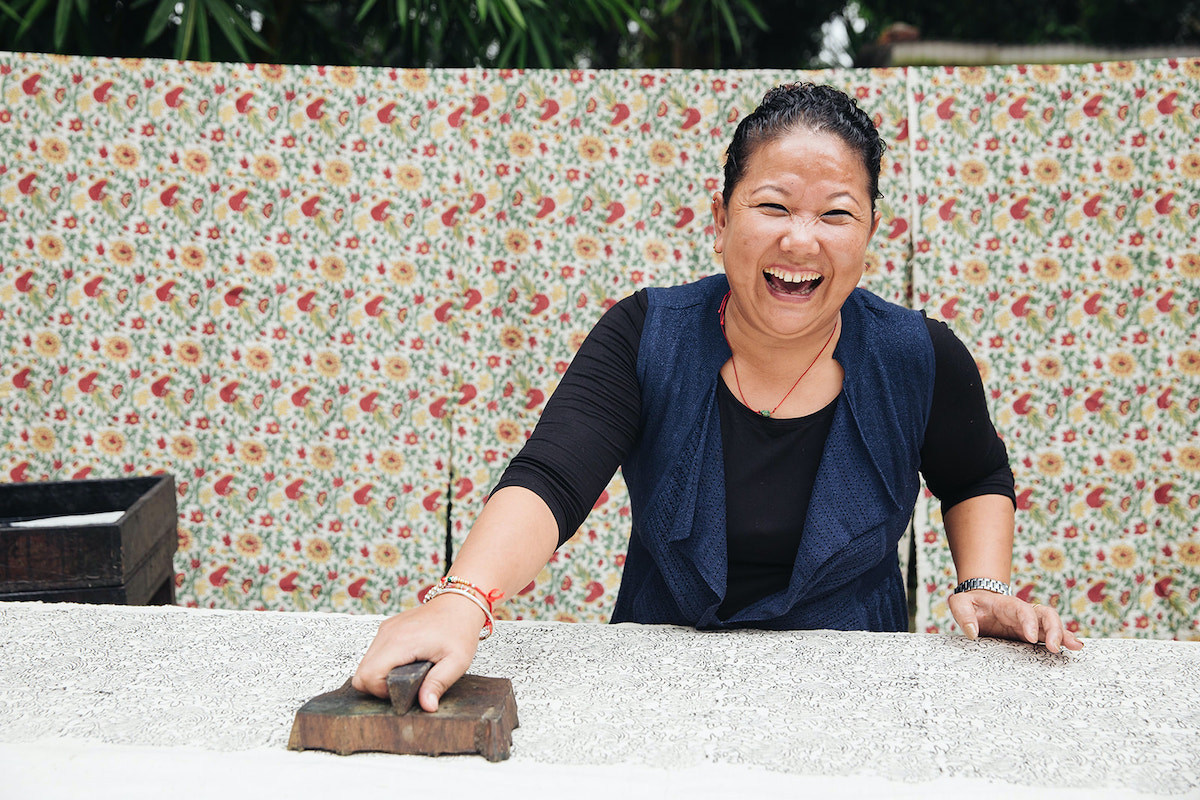
“After spending the better part of this decade living and working in rural Asia, I realised how underserved the true local leaders are,” Melody says. Describing them as “incredibly talented visionaries, who have huge potential to create an impact in their communities and the world”.
Through JOYN’s partnerships with such leaders, Melody and her team discovered that they often lack the exposure to markets, resources, networks and access needed to reach their full potential or to grow their ideas into a viable business.
“This is why I started JoyCorps to support these incredible leaders,” she states. “My favourite thing ever is to offer work to people who wouldn’t otherwise have any.
“If you’ve ever lived in or visited some of the regions in which we work, you realise the importance of a job. It doesn’t just bring economic support to your family; it brings purpose, value, community and much more.
“The most enjoyable part of my job is that each time I land a new sale, find a new customer, get a new purchase order, it equals more work, more jobs for those who really need it,” Melody shares.
The entrepreneur hopes that JOYN and JoyCorps continue to see healthy, sustainable growth and that both achieve their goal of doubling within the next five years.
“I’d like to see JOYN providing at least 500 jobs in vulnerable communities and JoyCorps supporting at least 30 other entrepreneurs that are also committed to job creation in these regions,” she says.
“It’s an exciting time for what we call ‘redemptive business’ – slow, sustainable business focused on people and the planet rather than solely profits. We want to see a world of empathy, creativity, passion and joy centred around people.”
Read next: The true impact of COVID-19 on women in the workplace


